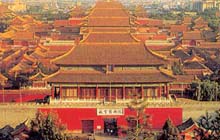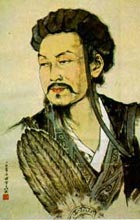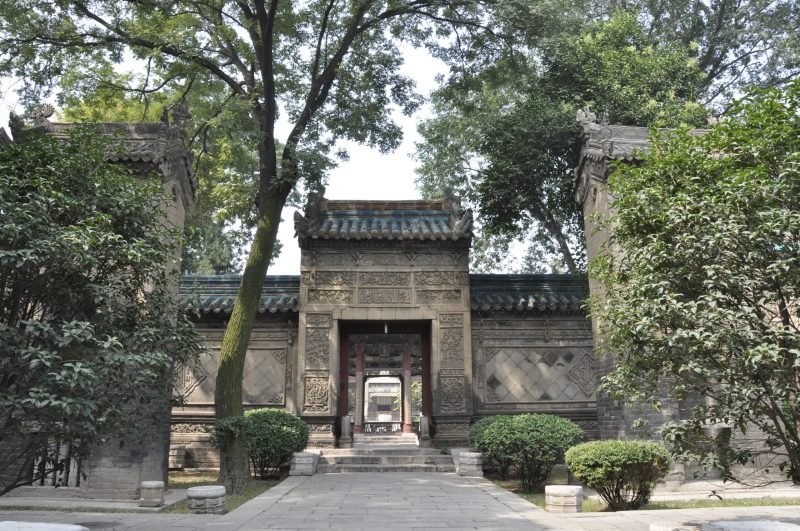Home of the Emperor, the Forbidden Palace was constructed in accordance with the laws of geomancy or fengshui. Every element was considered according to its prescriptions, the most fundamental being the positioning of the palace along a north-south axis.
The occult art of numerology similarly played a significant part within the palace's architecture. Since odd numbers are thought to be masculine and even ones feminine, the number nine, the "ultimate masculine" number, » Read more »
» Read more »Before the introduction of the engine, trackers were an indispensable feature of transport along the Yangzi. These river people battled daily with the river, providing the muscle to drag 40-100 ton vessels 1500 miles from Shanghai to Chongqing up a series of treacherous gorges and against a current of 6-12 knots. Mostly men, they worked like cattle for 12 hours a day, nine days at a time, to earn enough money to feed themselves poorly and every so often escape to an opium-fueled Elysium. » Read more »
» Read more »"The empire, long divided, must unite; long united, must divide." So begins the historical fiction "The Three Kingdoms" with a line as recited by the Chinese Diaspora as "To be or not to be" in the West.
These days many Western business schools introduce Eastern strategic thinking through Sun Tzu's treatise, "The Art of War". One imagines that there is no better primer for mediaeval battle. However, for an introduction to the Chinese conception of diplomacy, » Read more »
» Read more »The Three Gorges were so named from the late Han dynastic period (23 – 220 AD). This nomenclature groups into a set of three the numerous shoals and gorges of the Yangzi river between Wanxian and Yichang. The Three Gorges are the Qutang Gorge (8km long), the Wuxia Gorge (45km long) and the Xilong (66km long) Gorge.
The gorges are as fabled today as they have been throughout the past two millennia. » Read more »
» Read more »The History of the Silk and Fur Roads
The incursions of the Xiongnu, a savage Turkic tribe that regularly pillaged the towns on China’s northern border, prompted the Han Emperor Wudi (r. 140-86BC) to seek Western allies for a joint attack. For this military reconnaissance mission he sent out one hundred men, led by Zhang Qian, who took thirteen years to report back with tales of glittering western cities and alien cultures. » Read more »
» Read more »


